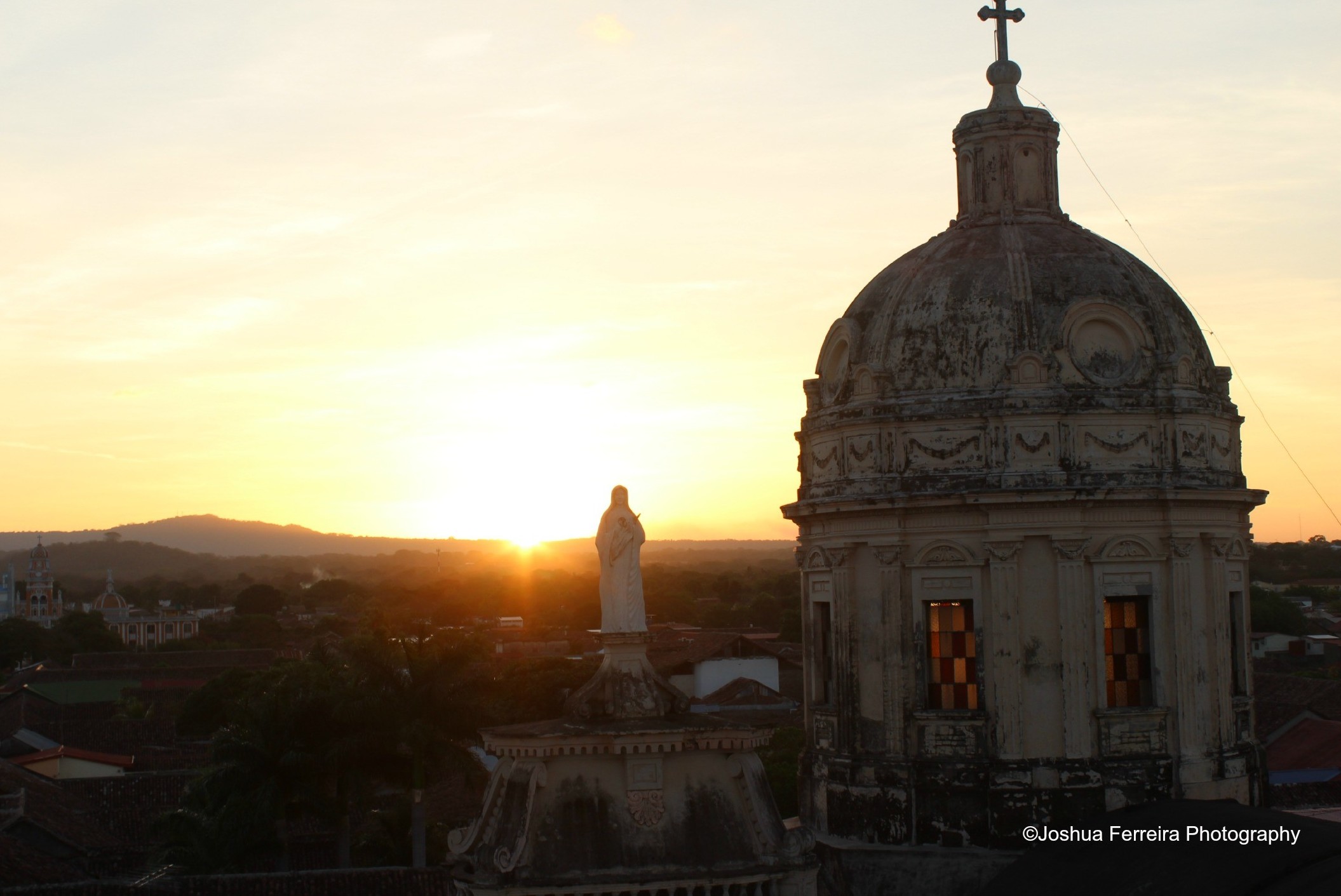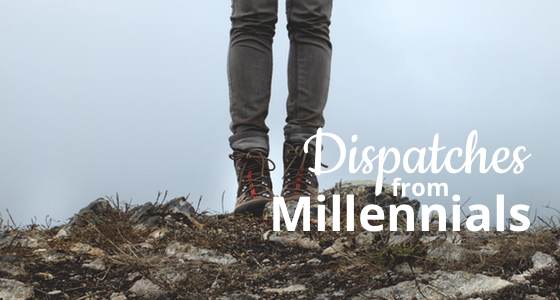Dreaming of travelling the world? Be prepared to fit your life into a backpack and focus on the road, not the destination.
The halo of light from my 15-dollar mobile phone illuminates the dirt road as I make my way to a small hostel for some beers with fellow travellers. Outside, it’s pitch black apart from the subtle brilliance of the constellations that have become familiar friends and the slowly rising crescent moon. As I find my way through the darkness, I think about how different my life has become these past three weeks.
Everyday life here is very different from what I’m used to in Toronto. Here, I wake up and shower with seawater drawn by pump from the ocean. I chop wood for the new wood-fired oven we built. I work for a place to sleep or in exchange for my next meal. I find that I revel in this atmosphere. Travelling is what I love; but it’s not a vacation.
When you decide to travel, you pack up your life and take it on the road with you.
Vacationing, for me, is about the destination. It’s a place you go, where you can put your feet up for a few days or weeks. Travelling, on the other hand, is about the journey. It often means setting off without a plan and the ability to enjoy the unexpected – like going three weeks without washing your clothes. When you decide to travel, you pack up your life and take it on the road with you.
How My Travel Itch Began
I started travelling during university in 2007. My first solo trip was to New York City, where I stayed for five days. I managed to fly down on points accumulated on my credit card. I have been searching for round-about ways to save money for travel ever since. Over the last seven years, I have worked and backpacked around Australia, couch surfed my way through Japan, plunged myself into debt throughout Europe, and worked and lived across North America. All in all, I’ve visited over 60 cities in 24 countries and lived abroad for over two cumulative years.
With each trip, I find new ways to keep the costs low and the experiences high. I am a 28-year-old fine arts graduate with a secondary teaching degree. I do contract work for an outdoor education company by day and bartend by night, slowly paying off my 30,000-dollar student loan while putting away spare pennies for my next destination.
I’ve learned it is completely possible to travel without money – which is a refreshing thought when living in a world ruled by the coin.
Right before my last trip (and the event that triggered my escape from Toronto) I was fired from my bartending job, leaving me to find work during one of the slowest times of the year. Flying on points once again, I was off to Nicaragua to volunteer for seven weeks with just under 1,000 dollars to survive on.
This was the first trip where I almost completely relied on exchanging labour for food and a place to stay, which was both beautiful and terrifying at the same time. I was constantly seeking the most cost-effective ways of keep myself on-budget – whether it meant working on a farm for a spot to camp or hitchhiking with three Swedish girls to the next town.
Since that trip, I have found a formula that has allowed me to plan ahead so that money is almost completely removed from the equation. I’ve learned it is completely possible to travel without money – which is a refreshing thought when living in a world ruled by the coin.
1. Make a Budget
The first priority in travel is planning your budget. I don’t think I’m alone in saying that most millennials have debt. Whether from post-secondary education, rent, car payments, or a vacation you couldn’t really afford, debt has become the new norm for us and it doesn’t look like it is going to change any time soon.
In order to figure out a cost-effective way to travel, a good, detailed budget is key. I have a spreadsheet in which everything gets recorded. From my monthly rent to the Timbits I bought – it all goes on the spreadsheet. From there I find ways to turn everyday expenses into a travel budget.
The biggest expense I have at home is my rent and monthly living expenses (groceries, hyrdro, cell phone, etc.) but I offset this expense by subletting my room while I’m away. I use Kijiji most of the time and interview different sublets, and I recently discovered a group on Facebook called Sublets For Gypsys, which typically features people from the entertainment industry who are searching for short-term rentals.
2. Book Your Flight(s)
Once you have decided where it is you want to escape to, you’ll need to research the cheapest possible way to get there. One website that has served me well for many years now is SkyScanner.net. It allows you to search flights from one destination to anywhere in the world. You are also able to book multiple flights to reach one destination, which has often allowed me to visit another country for a few days without paying for additional airfares. Another way is through credit card bonus points. Most of us have a credit card, and while they can be dangerous, you can also make them work for you.
3. Find Accommodation (and Work)
Next you’ll want to look into accommodation options and general costs. On my most recent trip I spent the majority of my time working for accommodation or for meals. Two great websites that helped in my success were www.helpx.net and www.wwoof.net. Both offer a wide variety of opportunities for volun-stays for anywhere from a week or two to six months or more.
Look for blog posts or reviews and ensure that where you are headed is exactly as they say.
Once you have found a place, do some additional research to dig deeper. Look for blog posts or reviews and ensure that where you are headed is exactly as they say. I’ve never had any major issues, but we’ve all heard our share of travel horror stories, so it’s always best play it safe and do your homework. While you probably won’t make enough money to brag about back home, it is quite easy to make enough to live off of. Which is all you need when everything you own fits into a backpack.
4. Finalize the Details
Any other expenses that can’t be helped (car payments, school payments, etc.) should be pre-planned for as well. There’s nothing worse than being in the middle of Central America and being slapped with a 500-dollar bill for a missed school payment. Some things can be deferred by a phone call; others need to be pre-budgeted for. Prioritizing for a month or two beforehand can help immensely – I often ask myself, “do I want to go have pints with the guys or would I rather have five nights in a hostel?” I apply this question to every decision I make in the months leading up to a trip.
Remember, the return budget is almost as important as the travelling one – make sure you’ve got a way to pay your bills upon return. This may mean subletting your place while you crash with friends for another month upon your return or organizing some contract work to come back to. Everyone has a skill to share, and there’s almost always someone willing to pay for it. I’ll often advertise on Kijiji for handyman work and I have been quite successful in doing so. I also have friends that tutor or offer dog walking services in order to make some quick extra cash.
Too often we are so focused on our end goals, that we miss the scenery surrounding us in the moment.
5. Be Flexible
Finally, be prepared to be flexible. I don’t over-plan a trip, but I like to be prepared. Quite often I spend a little extra on the ability to change my outgoing flight at the last minute by buying the insurance ticket. I keep my options open for any amazing opportunities that may arise, but if it doesn’t happen, I try not to spread myself so thin that I have to sleep in a hostel baggage room. (OK that’s only happened once or twice!) Keep yourself disciplined and you’ll keep yourself out of trouble and on budget.
Remember, life on the road is about exactly that — the road, not the destination. For me, the greatest adventures have not come from the meticulously planned trips, but the journey along the way. Too often we are so focused on our end goals, that we miss the scenery surrounding us in the moment. These little details are what make travel so exciting – they’re the stories we’ll be sharing with our friends over a pint upon return and the ones that become ingrained into our memories. Life would be utterly boring without them.


